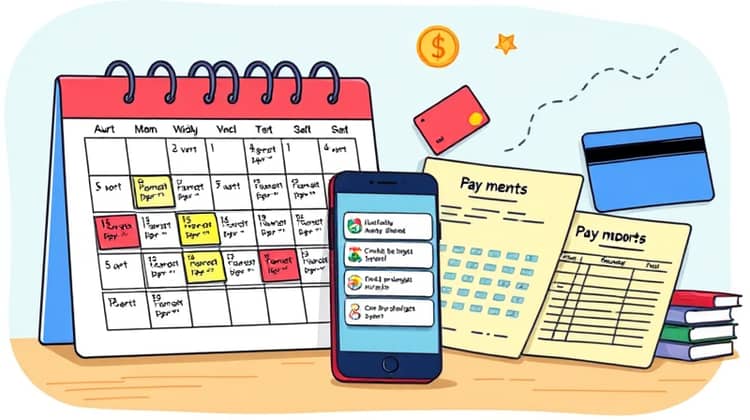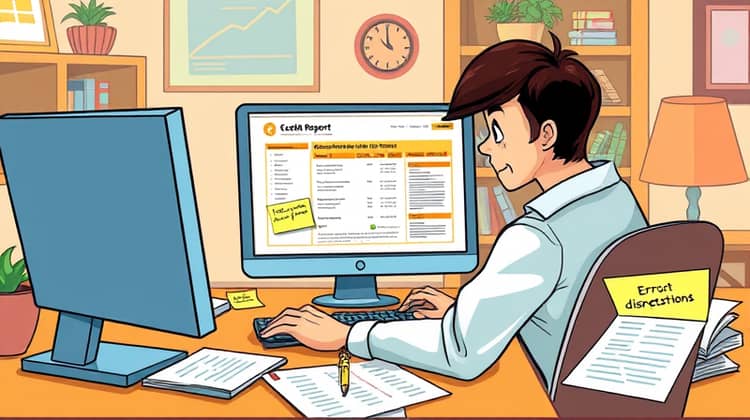Improving your credit score can seem like a daunting task, but with the right strategies, you can make significant progress much faster than you might expect. Your credit score is crucial not only for securing loans and credit cards but also for obtaining favorable interest rates and terms. Here are five practical tips that can help you elevate your credit score quickly and efficiently.
Whether you need to boost your score for a major purchase or simply want to enhance your financial health, implementing these tips will give you the roadmap you need to achieve your goals. Let's dive into the first essential step to improving your credit score.
1. Make Your Payments on Time

One of the most critical factors affecting your credit score is your payment history. Ensuring that you make your payments on time can significantly enhance your creditworthiness in the eyes of lenders. Late payments can remain on your credit report for up to seven years, which can be detrimental to your score and your financial future.
To keep your payments timely, consider setting up reminders or automatic payments. This way, you won't miss due dates, and you can focus on maintaining a positive credit history.
- Set reminders for payment due dates.
- Consider automatic payments for recurring bills.
- Review your payment history regularly.
By making your payments on time, you are building a strong payment history, which is essential for a healthy credit score. Start implementing these practices today to see improvements in your overall credit.
2. Reduce Your Credit Card Balances

High credit card balances can negatively impact your credit utilization ratio, which is another key factor in determining your credit score. Maintaining a balance lower than 30% of your credit limit can help you improve your score rapidly. By reducing your debt, you will not only lower your utilization ratio but also relieve some of the financial stress that comes with overwhelming debt.
Consider focusing on paying off cards with the highest interest rates first, or using the snowball method by targeting your smallest debts. Whichever strategy you choose, the goal is to decrease these balances over time.
- Pay off high-interest credit cards first.
- Consider using personal savings to reduce debt.
- Avoid accumulating new debt while paying off existing balances.
Reducing credit card balances can considerably lower your credit utilization and positively affect your credit score. Begin this process as soon as possible for effective results.
3. Become an Authorized User

Becoming an authorized user on someone else's credit card can also help boost your credit score. If the primary cardholder has a good payment history and low credit utilization, you can benefit from their positive credit behavior. This method is especially beneficial for individuals with a limited credit history or those looking to rebuild their scores.
Before pursuing this strategy, ensure that you trust the primary account holder and that they use their credit responsibly. The addition of a positive account to your credit profile can make a significant difference.
- Ask a family member or trusted friend if they can add you as an authorized user.
- Make sure the primary account holder has a positive credit history.
- Monitor your credit score to see the effects of this addition.
Being an authorized user can provide a significant boost, but it's important to choose the right individual to align with your credit goals. Keep tracking your score for adjustments as you become an authorized user.
4. Diversify Your Credit Mix

A varied credit mix, which may include revolving credit (like credit cards) and installment loans (such as a mortgage or car loan), can have a positive effect on your credit score. Lenders prefer borrowers who can manage different types of credit responsibly, as it demonstrates financial stability and reliability.
However, it's crucial to note that you should only take on credit that you can manage. Opening unnecessary accounts can lead to more debt and negatively impact your score if not handled properly.
- Consider applying for a small personal loan or retail card if you don't have a mix of credit.
- Ensure that any new credit is manageable within your current budget.
- Use existing credit cards responsibly to maintain a healthy mix.
Diversifying your credit mix can improve your credit score over time, but do so wisely and keep your finances under control.
5. Check Your Credit Report and Dispute Errors

Regularly reviewing your credit report is essential for maintaining a healthy credit score. Mistakes can happen, and errors on your report can lead to a lower score than you deserve. By checking your report annually, you can identify discrepancies and take action to correct them. Many consumers are surprised by the number of errors they find, which can often be resolved through careful review and dispute.
If you come across inaccuracies, promptly dispute them with the credit bureau to have them corrected. This process can be done through online platforms or by mail, and it's essential to provide evidence supporting your claim.
- Request a free credit report once a year from the three major credit bureaus.
- Identify any inaccuracies or errors in your report.
- File a dispute with supporting documentation to correct any mistakes.
By taking the time to check your credit report and rectify errors, you can ensure that your credit score accurately reflects your financial history. Consistent monitoring and correction can translate to improved credit scores over time.
Quick Credit Score Improvements Take Time

It's essential to understand that while implementing these tips can yield quick improvements, effectively enhancing your credit score requires ongoing effort and commitment. Changes won't happen overnight, and patience is necessary as you work on building a better credit profile. Focus on establishing good habits and ensuring consistency in your credit management practices for the best results.
Engaging with financial education and remaining informed about how credit works will aid you in making smarter decisions moving forward. Remember that the journey toward improving your credit score is equally as important as the score itself.














